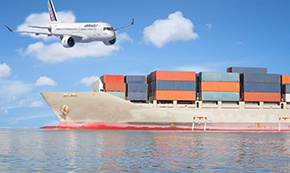All categories >
Major Development! The US will impose port fees on Chinese vessels; those failing to pay will be prohibited from docking, unloading, and departing!
Categories:
News Center
News
Time of issue:
2025-08-08 10:18
Views:
According to industry media, Lloyd's Daily, citing sources, The U.S. Customs and Border Protection (CBP) has been designated as the agency to implement and collect the new port fees, It will establish a new Pay.gov payment platform for shipowners and operators to make payments. Those who fail to pay according to regulations will be prohibited from berthing, unloading, and obtaining port clearance permits.
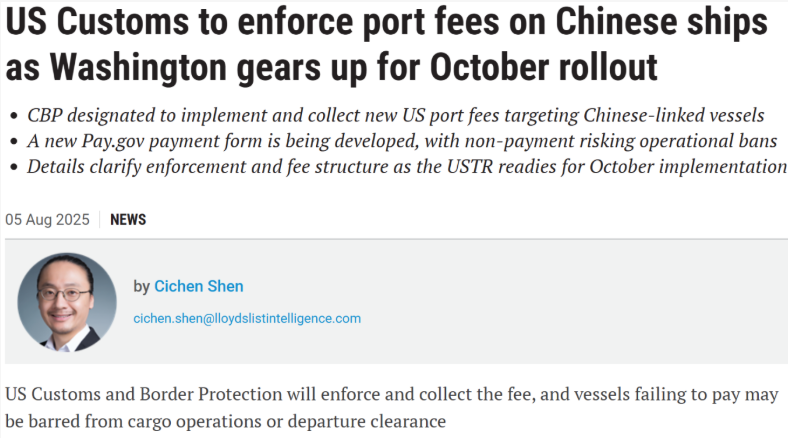
In April this year, the Office of the United States Trade Representative (USTR) announced the details of the port fees imposed on ships built in China. Although the intensity has been reduced compared to the initial proposal of levying millions of dollars per call on ships built in China, industry insiders believe that the new regulations are more targeted at Chinese shipowners.
Key Interpretation of the New US Regulations
According to the final rules, the charging policy is divided into two categories:
0 1. Vessels of Chinese shipowners or operators
The port fee will be levied at US$50 per net ton, implemented from October 14, 2025, and will increase by US$30 per net ton annually for the next three years, gradually rising to US$140 by April 2028. A maximum of five charges per vessel per year.
Taking the COSCO THAILAND container ship with a net tonnage of about 59,000 tons as an example, US$2.95 million will be required for each port call in 2025, and the cost for five port calls per year will be US$14.75 million. By 2028, the cost per port call will soar to US$8.26 million, and US$41.3 million for five calls per year, which is undoubtedly an extremely heavy economic burden.
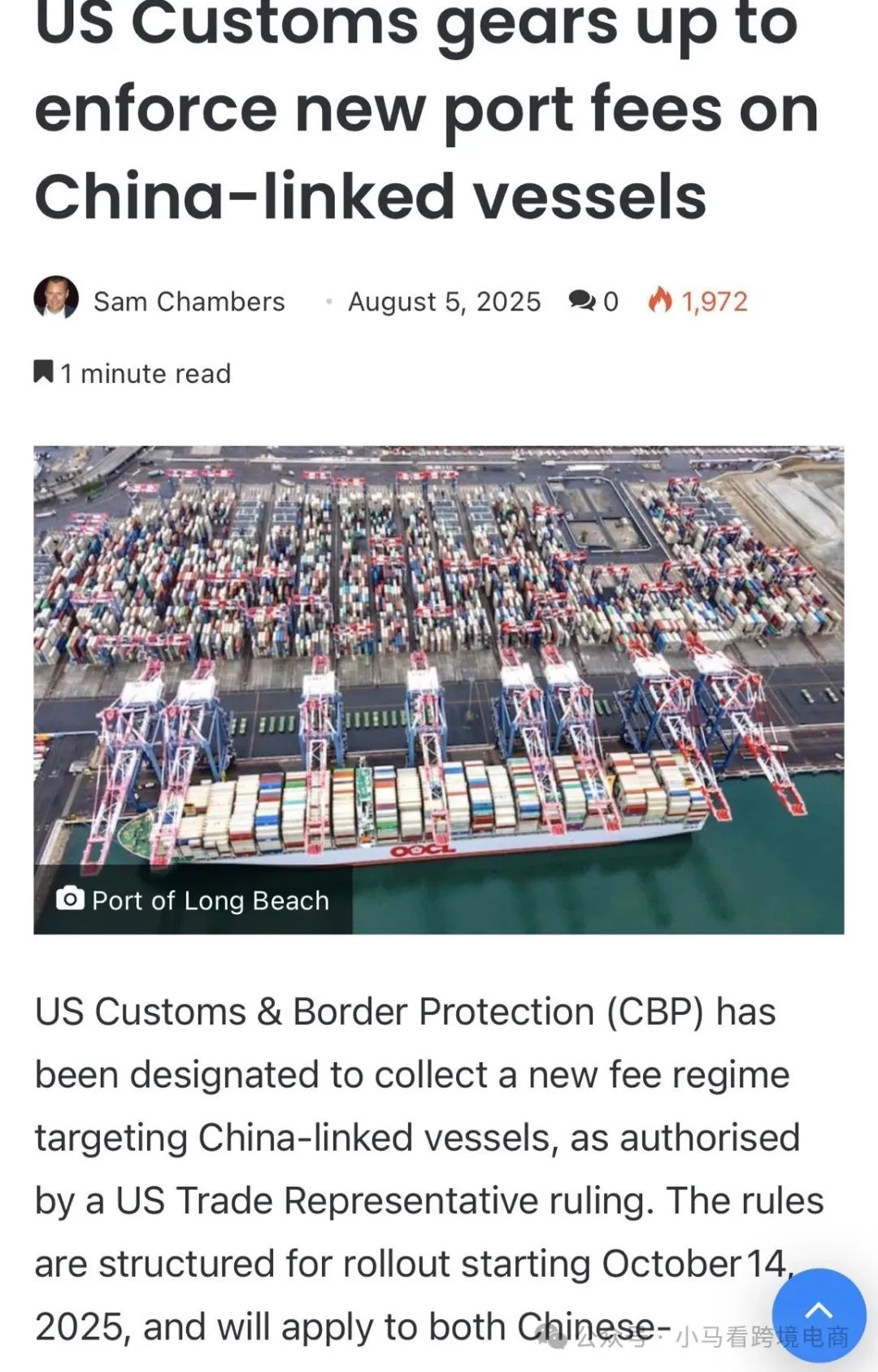
0 2. Operators who are not Chinese but use ships built in China
The charges are relatively low, starting at US$18 per net ton, or US$120 per container, whichever is higher. In the future, these two fees will also increase to US$33 and US$250 respectively. This charging method, affects operators worldwide who use ships made in China, has plunged many international shipping companies using Chinese ships into difficulties, and has exposed the hegemonic thinking of the United States attempting to restructure the global shipping ecosystem through administrative means.
In addition, the Pay.gov payment platform established by the U.S. Customs and Border Protection will facilitate automatic clearing directly from bank accounts, avoiding cash or other physical payments. The form will contain data fields such as vessel identification, port of arrival, estimated arrival date, payer information, and remittance items.
Impact on All Parties
01 Impact on Chinese Shipping Companies
For Chinese shipowners and operators, the significant increase in costs is the most pressing issue. In order to maintain operations, companies have to consider raising freight rates, which may reduce their price competitiveness in the international shipping market. Furthermore, some small shipping companies may face operational difficulties or even bankruptcy due to the inability to bear the sudden increase in costs.
At the same time, shipping companies may reduce the deployment of Chinese-flagged vessels on US routes, leading to fluctuations in cabin supply. During peak shipping seasons, this may exacerbate container shortages and affect the normal transportation of goods.
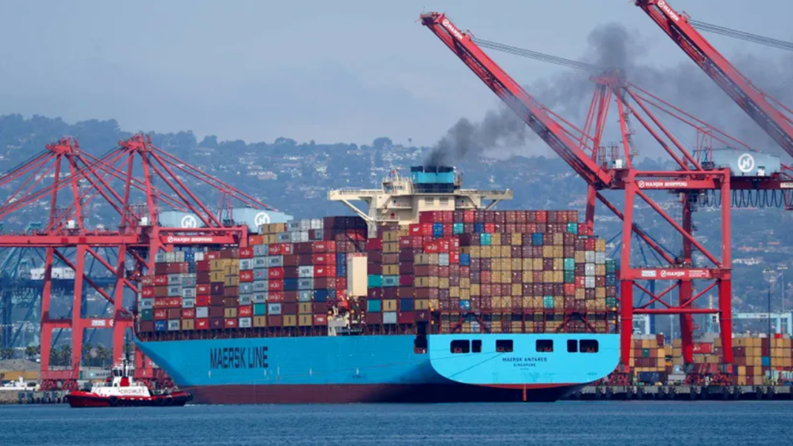
02 Impact on Chinese Foreign Trade Enterprises
For Chinese foreign trade exporters, the increase in shipping costs will be directly passed on to freight charges, increasing export costs. Especially for low-margin products that rely on price competition, such as textiles and toys, the increase in costs may cause them to lose their price advantage, reduce order volume, and thus affect the survival and development of enterprises.
In addition, instability in shipping routes and tight cabin space may lead to delays in cargo transportation, affect delivery times, lead to customer complaints or even claims, and damage the reputation of Chinese foreign trade enterprises.
Impact on the Global Shipping Pattern
This US policy puts global shipping companies in a dilemma of "choosing sides". Since China occupies an important position in the global shipbuilding industry, most of the vessels in the fleets of the world's top ten shipping companies are made in China.
Non-Chinese operators using Chinese ships also need to pay port fees, which may prompt some companies to re-plan their fleet composition and seek non-Chinese-made ships; however, it is difficult to find sufficient alternative capacity in the short term globally , and non-Chinese ships may also increase in price due to increased demand.
This policy may also trigger other countries to follow suit and set up similar discriminatory port fees , thus disrupting the global shipping order and undermining the multilateral trading system established after World War II.
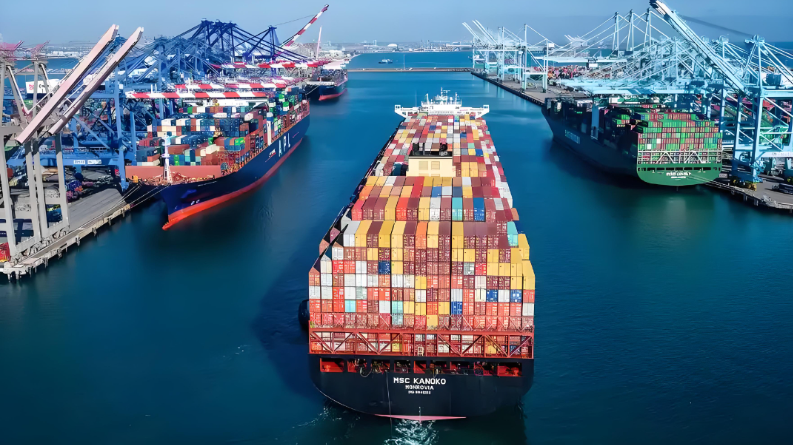
Industry Response
The global shipping industry has widely and strongly criticized this US policy. The World Shipping Council (WSC) believes that its legality is questionable and warns that this measure is particularly serious for large vessels that support the operation of the US economy.
In the face of this unreasonable US policy, the spokesperson of the Chinese Ministry of Commerce has previously stated The United States acted unilaterally and insisted on issuing relevant restrictive measures, to which China expresses strong dissatisfaction and resolute opposition. China will closely monitor the relevant developments of the United States, and will resolutely take necessary measures to safeguard its own rights and interests.
The impact of the United States' imposition of port fees on Chinese vessels is far-reaching, involving multiple fields such as shipping and foreign trade, Relevant enterprises need to closely monitor policy developments and actively take countermeasures to mitigate adverse effects. Going forward, we also expect China to introduce more effective countermeasures and coping strategies to help relevant enterprises overcome difficulties.
Shenzhen Huijietong International Freight Forwarding Co., Ltd. - Professional US Line Transportation Services
In the field of US line transportation, Shenzhen Huijietong International Freight Forwarding Co., Ltd., with its professional services and rich experience, has become a trusted choice for many customers. Huijietong International Freight Forwarding Co., Ltd. focuses on US line transportation, providing comprehensive logistics solutions, including sea, air, land transportation, and warehousing services. The company maintains close cooperation with major shipping alliances and can provide flexible space arrangements and efficient transportation services according to customer needs.
Choosing Shenzhen Huijietong International Freight Forwarding Co., Ltd. means choosing professional, efficient, and reliable logistics services. For more details, please visit [Huijietong official website www.szvif.com]
For US routes, choose Huijietong!
Shenzhen Huijietong International Freight Forwarding Co., Ltd., your professional US line transportation partner.
Service Hotline: 0755-82171929 13560787209

WeChat QR Code
Keywords:
Port charges,US-China tariffs




